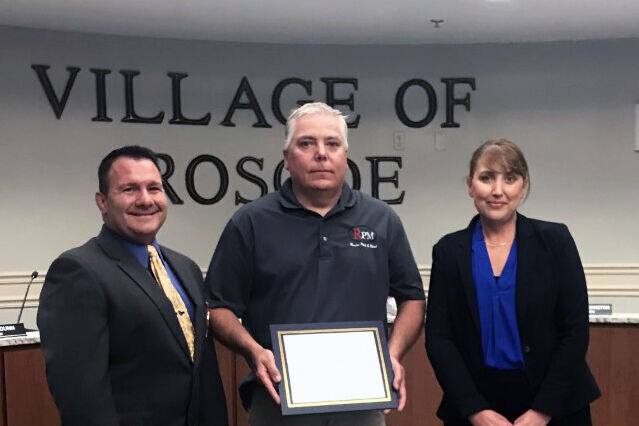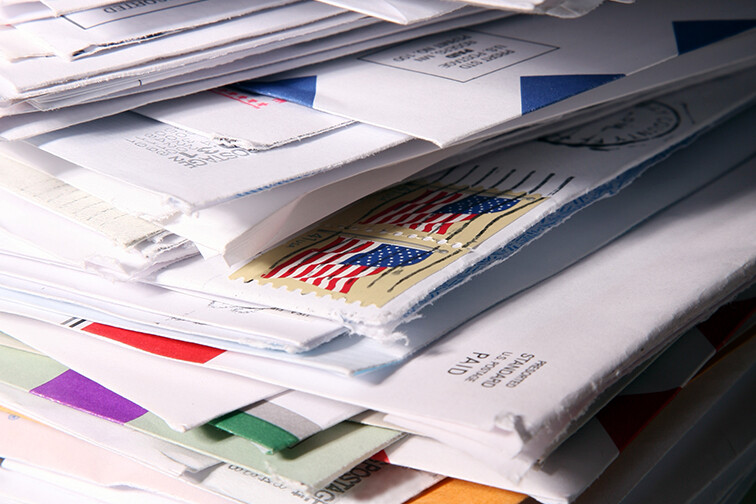The deceptive art of mail fraud: protecting yourself from scammers
Anyone can be a target of mail fraud. A Roscoe business owner has tips to prevent you from becoming the next victim of scammers.

Marshall Barkley, the owner of Roscoe Pack and Mail, received recognition from the Village last September for preventing ten attempts of fraud in his store. For example, Barkley recalls that one customer came into his store wanting to send cash to Publishers Clearing House. When Barkley questioned the customer further, he discovered that a caller claiming to be from Publishers Clearing House had said the customer had won their sweepstakes. But first, the caller would need cash to cover the taxes before sending the prize money.
Barkley says, "Someone calls the customer telling them that they are with a police department (usually from the area their grandchild is going to college) and their grandchild was arrested. They can release them with no citation as long as cash is sent for bail by the next day."
Other scenarios he has dealt with include a caller pretending to be from a computer company and gaining access to a customer's computer, including their banking information. "The caller will call back later and tell the customer that when they were working on their computer they accidentally put money in their account and when they check their bank statement they will see a transfer made to the account." They tell the customer to send them the money by mail, but meanwhile, they reverse the transaction.

Even in the digital age that we live in, the traditional art of sending and receiving mail still holds its place. Like many other ways of communication, physical correspondence has been misused to benefit criminals. The rising threat of mail fraud continues to haunt individuals, businesses, and government organizations alike.
Mail fraud, defined as the manipulation or deception involving postal services, has long plagued societies worldwide. Perpetrators exploit the trust placed in mail delivery systems, capitalizing on the anonymity and distance that separates sender and recipient. According to the United States Postal Inspection Service (USPIS) there are several types of mail fraud.
Fraud Against Older Americans:
While anyone under the right circumstances can fall for a phony offer or promotion, some groups, like retirees, are more impacted than others when they unknowingly participate in scams.
Fraud Against Veterans:
78% of retired military men and women have been targeted by scams. Veterans trust fellow members of the military, making them more vulnerable to imposters making fraudulent claims about benefits, employment, and special discounts.
Sweepstakes and Lottery Fraud:
If there is pressure to act and you must send money to collect your prize, you haven’t won anything.
Employment fraud:
Common employment scams, such as pyramid schemes, check-cashing schemes, and phony job offers, typically request personal information, bank details, or buy-in to secure the job.
Telemarketing fraud:
Often begins with postcards or letters in the mail describing an appealing offer and a prompt to call a 900 number or a toll-free 800 number. Telemarketers often have a convincing sales pitch and use high-pressure tactics to trick the recipient into handing over personal information.
Financial fraud:
Any offer that requires payment first—for a new credit card without a credit check, an advance on a loan, or an amazing deal on a product or service—is probably a scam.
Other mail fraud:
Includes brochures offering services for unusually low prices, phony inheritance notifications, and notices asking for payment for free services.

This is not only limited to correspondence or online mail. Often scammers will call by phone with a fake scenario and will ask to send them cash.
The impact of mail fraud cannot be underestimated. It poses a significant financial burden on individuals and businesses, erodes public trust, and undermines the stability of commerce. This is why we need to know how to protect ourselves. Here are some tips to do so:
- Don't share financial information: Social Security number, credit card, or bank account numbers to anyone you don’t know and don’t trust.
- Don't be pressured into making an immediate decision: entering a contest, making a purchase, or donating
- Check out the company online or with a consumer advocacy group
- Consult with a trusted friend: any promotion, offer, or fundraising appeal before making a commitment or sending payment.
- Reduce unwanted telemarketing calls by blocking them.
- Read everything including the “fine print” before taking action.
Before you delete a phishing text message, report it to your bank or credit union’s fraud department. You can report it to the Federal Trade Commission by copying the message and forwarding the spam text to 7726. That can help block similar messages in the future.





